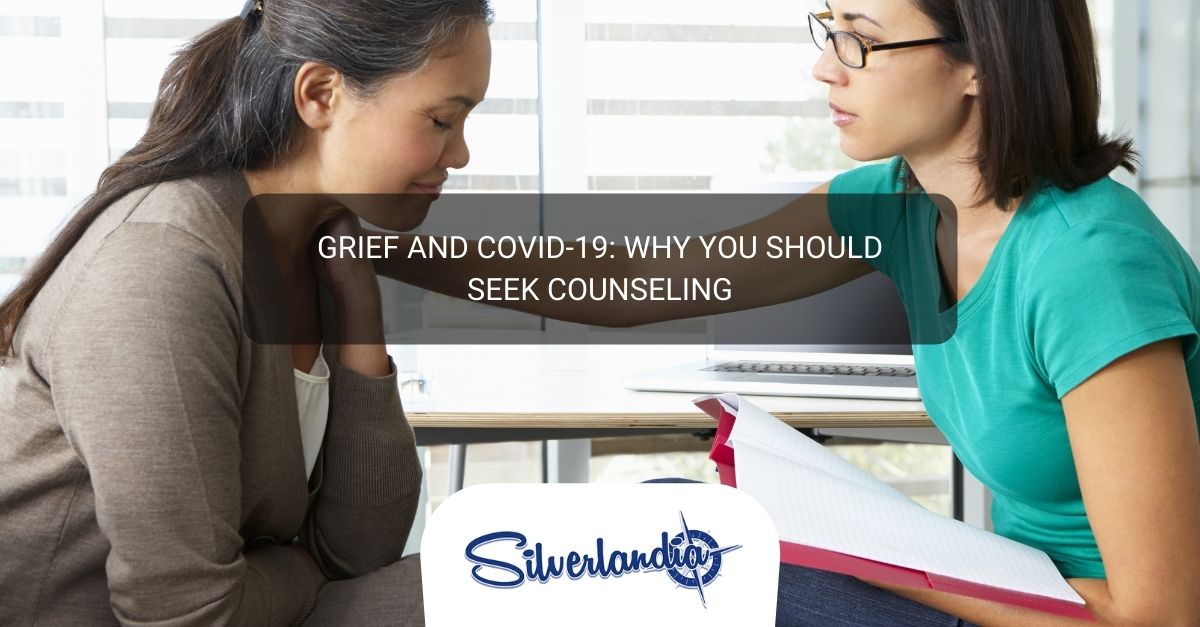During the pandemic, many of us lost friends and loved ones or lost our means to make a living. In turn, we may still be grieving from the impact. Grieving is not a process you simply go through. It may last for many years if you don’t seek a support system or therapy. To overcome the feelings grief presents, it’s important to talk things out. This means seeking treatment from a grief counselor or receiving support from a family member or friend. To understand how grief affects us, we need to define it.
Why Grief Is Complicated
One of the most studied subjects in psychology, grief involves a wide range of emotions. While grief is normal, even healthy in some cases, your response may feel confusing and painful. When you’re grieving, you may experience sadness, anger, and bouts of hopelessness or despair.
Physical symptoms accompanying grief include insomnia or oversleeping and changes in appetite. Culturally, people often deal with grief through their religion or family. However, psychologists offer a formula called the “five stages of grief.”
These 5 phases are commonly applied to a person’s emotional reactions to loss. The acronym DABDA represents these 5 stages. The letters represent Denial, Anger, Bargaining, Depression, and finally Acceptance.
The 5 Stages of Grief: How they Developed
Elisabeth Kubler-Ross originally developed these stages as the “Stages of Dying” in her book, “On Death and Dying” in 1969. Kubler-Ross based these stages on a study of terminally ill patients. The stages were expanded later to include any type of significant personal loss.
Over time, the stages have been applied to different types of loss, including death, separation, the loss of a job, or the loss of a pet. Grief counselors are well-acquainted with these stages.
If you seek counseling, your counselor may use the stages as a director-general guide. Regardless of their use, they make up the framework that helps us deal with loss. Not everyone goes through the stages in the established order. However, each stage gives us the knowledge needed to cope with a COVID loss.
Experts in the field of grief counseling suggest that grieving is easier if you do so actively. If you don’t face your grief, the wounds do not fade. Also, it is important not to make decisions while grieving. Get the support you need and take care of your emotional needs first.
The First Stage of Grief: Denial
It is normal to deny, at first, what you learn about an unexpected loss. Numbness and shock are typically experienced. After the initial shock wears off, you’ll usually feel angry. According to psychiatrists, a person denies information that is too upsetting to accept. This information conflicts with their beliefs and thoughts.
The Second Stage of Grief: Feeling Angry
Once you realize you cannot deny what you know, you’ll typically feel angry. You may lash out at someone who tries to support you. You’ll feel like blaming someone for your loss. Some people may ask themselves, “Why me?”
Midway through the Grieving Process: Bargaining
This stage is often experienced after the anger stage. During this stage, you may try to bargain with a Higher Power or God. If He can make things different, you’ll promise, for example, to be a “better person.”
The Fourth Stage: Experiencing Depression
During this stage, individuals often feel hopeless and may develop debilitating grief. They may lack motivation and energy.
The Final and Fifth Stage: Acceptance
The final stage of grieving, or acceptance, is the place you want to reach. This is where you make peace with yourself and others. At this point, you’ve accepted your loss and are ready to go down a more positive path in life.
Choosing a Counselor
Even if everything was in place during the COVID quarantine, you may have experienced some transitions that are hard to accept. When seeking a local counselor, review their services. COVID-19 has affected us in various ways.
Counselors provide services in grief counseling, life transition therapy, mindfulness-based treatments, depression, and trauma therapy. People can benefit from any of these therapies that have made changes in their life. Couples therapy is yet another option. The pandemic may have affected your relationship.
Treatment Add-ons that Help
When seeking a counselor, look at some of the add-ons you may include in a customized therapy plan. For example, you can follow a therapy plan that you can work on at home so you can track your progress. Both you and your therapist will collaborate on the therapy.
You may also opt-in for check-ins between sessions. These 15 minutes mini-sessions offer you extra support for getting through a crisis. You can schedule three sessions weekly by phone or through a video dialogue. You can also combine the two forms of communication during therapy.
Counseling by Email
Some patients prefer more privacy and like to receive emails during counseling. You can choose to schedule 3 emails or 5 emails each week.
Talk to Someone about How You Feel
Grief is not just about the loss of a loved one or friend. It may also involve losing a job or a way of life. During this tremulous time, it is important to seek counseling if you’ve experienced a loss. Talk therapy can do wonders as it helps you heal and move forward in life.



